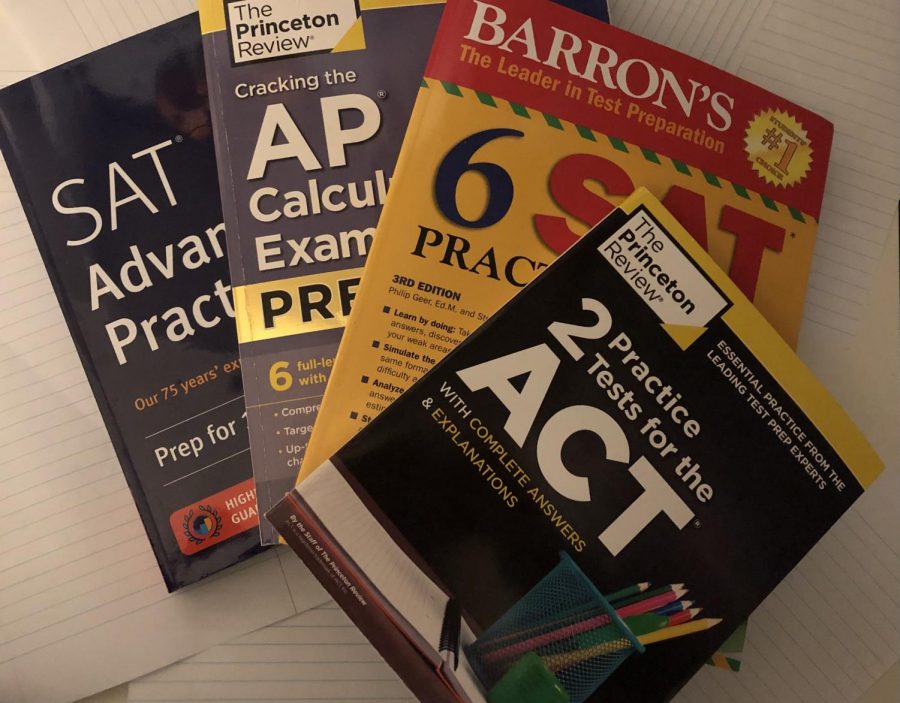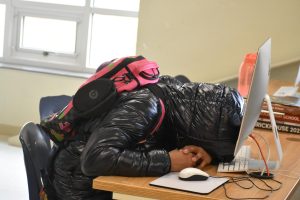Standardized testing biased and unfair to students
December 14, 2020
In an effort to improve the nation’s education system, the U.S. has ended up deteriorating it. The enforcement of consistent testing has caused the focus of curriculum to shift onto test preparation instead of the content of the subject. Rather than learning, students are obliviously partaking in a system that does not benefit them in the ways it promises.
Although standardized tests claim to measure the knowledge that was gained over a course of time, it merely tests a students ability to retain information, and take a test. According to Cody Kommers from Psychology Today, “There is one kind of strength they can measure: how well a student takes standardized tests.” Why are schools focusing on student’s test performance instead of their consumption of knowledge, and capabilities to communicate and utilize the information they’ve learned?
Regardless of the existing difficulties, bias amongst socio economic classes, races and people with disabilities have made testing more controversial.
“They’re definitely disproportionately set up to benefit neurotypical, middle and upper class white people,” said Marley Gardner, junior.
Brookings, a non-profit organization based in Washington D.C. provides statistics on the race gaps in math SAT scores. “…Among top scorers—those scoring between 750 and 800—60 percent are Asian and 33 percent are white, compared to 5 percent Latino and 2 percent black. Meanwhile, among those scoring between 300 and 350, 37 percent are Latino, 35 percent are black, 21 percent are white, and 6 percent are Asian.” The factor of bias that lies within the tests determines that testing an entire grade with students from different conditions isn’t a precise way to test their comprehension.
In addition to factors that create challenges, Covid-19 has become a detrimental part of test taking this school year. For instance, many schools including U. City have altered their final exams grading process, and testing procedures that are currently being re-evaluated by faculty. Mecca Champion, sophomore, acknowledges that testing has become more of a stressor for students this semester, with the added anxiety of physical health.
“I think it’s definitely more stressful than any other test because people don’t know the material as much as they would if we were in school,” Champion said.
Although administration is making an effort to provide resources during this time, and reduce the pressure of test taking, this is a systemic problem. Restructuring the education system begins with abolishing education’s reliance on standardized testing.
With the different backgrounds that students come from, testing cannot accurately estimate a person’s intelligence. April Money, counselor and coordinator of EOC testing, can attest to this.
“I’ve always thought that SAT and ACT aren’t always true indicators of every student’s success,” Money said. “They are not a best fit for some students who are in underserved populations.”
Despite testing difficulties, many students have encountered a lack of motivation, which affects their ability to focus in the distanced learning setting. Since some students may not be performing and focusing as well in school, testing is undoubtedly an inaccurate representation of their capabilities this school year, and Covid-19 has helped put this in perspective for students, teachers and administration.
“Standardized tests have been too powerful in education, and we need to adapt education to meet these tests,” said Katy-Jane Johnson, counselor. “By no fault of the educators, principles, or creators, it’s just what we’ve had to do. They’ve become too powerful in the world of education and it’s taken away creativity, the needs of the students, and curriculum, because we’ve been forced to design our curriculum to prepare students for these tests.”
There are many factors that play into the inaccurate assumptions of standardized testing, and all of them demonstrate reasons for shifting schools’ focus onto the improvement of students’ knowledge. Not only does testing block opportunities from students, but it contributes to systemic issues regarding race, social class and neuro abilities. In order to proportionately produce opportunities for students that are already disadvantaged, the education system must steer itself away from relying on standardized testing, especially with this year’s circumstances.







































Bart Stewart • Dec 14, 2020 at 3:13 PM
A well-thought out editorial. What is the solution?